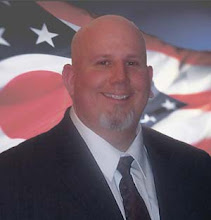Politicians have been lamenting it in search of better polling numbers for 18 years. Senator Evan Bayh (D-IN) says it is part of the reason he is not seeking reelection this year.
In the February 18 edition of the Lima News, Representative Jim Jordan (R-Urbana) dismissed the mention of it as an excuse for his party’s opponents in their failure to ram major Progressive Liberal legislation down the American people’s throats in 2009.
The topic that supposedly is so taboo among members of both major parties is “gridlock.”
In my lifetime, this term sprung into the American political lexicon after being used by retired Vice Admiral James Stockdale during the 1992 televised debate between the top three vice presidential candidates.
Since then, politicians on either side of the aisle have accused their respective antagonists of creating gridlock on Capitol Hill when legislation tied to a campaign promise or major plank in their party’s platform fails to become law in an expedient manner.
The problem with Bayh’s complaint and Jordan’s dismissal is their comments are rooted in a false Progressive premise that the federal government must act on behalf of the people whenever an issue enters the forefront of the American political consciousness.
The truth is that if Washington can manage to enact legislation to allow the sale of insurance plans across state lines, reform tort litigation, restructure how benefits are paid, and other such strategies, these will not be new, revolutionary laws that somehow are the exclusive intellectual domain of Republicans: such congressional acts will serve to reverse past government interferences of the free market system.
These interferences were put in place through progressive government action brought about and expanded upon by both major parties at the federal and state levels.
For anyone from either the Democratic or Republican parties to lay claim to supposedly fixing a problem exacerbated by both sides is terribly disingenuous.
What bothers me most about Jordan’s comments regarding the current political climate is the manner in which he presents them. His underlying message is one of, “If the Republicans can get our laws enacted, then see what we’ll have done for you.”
The notion that a majority party in Congress being unable to push its agenda through at will somehow constitutes gridlock is a pure sham. If this gridlock would have taken place more frequently on Capitol Hill over the past 10 years America would not be facing either a national debt that today stands at $12.4 trillion or combined unfunded liabilities totaling over $107 trillion.
As a result, for Jordan – or anyone else in his party for that matter – to decry “big government spending and action” is laughable. In January 2001 when his party enjoyed control of both Congress and the White House, the federal deficit was approximately $5.7 trillion: by January of last year it had been ratcheted-up to $10.6 trillion – including a roughly 50% increase in discretionary spending.
In that February 18 article, Representative Jordan asserted, “When voters sense arrogance, they don’t like it.”
Pardon me, Mr. Jordan, but all that sounds pretty damned arrogant to me.
Thursday, February 18, 2010
Subscribe to:
Post Comments (Atom)

One of the false assertions driving the pseudo-hysteria over gridlock in Congress is, "when we need the government to respond to a crisis, doing nothing means people suffer."
ReplyDeleteWhen someone tries to counter with that point, remind them of this: that is what the Executive Branch (or the President's administration when debating someone who is Article II-challenged) and the respective departments beneath it exist to do.
Dealing with real crises and emergencies is why we have the Department of Defense, the Centers for Disease Control and Prevention, FEMA (although it is admittedly quite woefully mismanaged), the Coast Guard, and various law enforcement agencies at the local, state, and federal levels. They are the nation's first responders.
Gridlock in Congress simply means the chances of those departments and agencies being unnecessarily handcuffed by ignorant, bureaucratic red tape is significantly reduced.